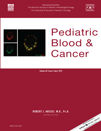Abstract
Background
Language is an important aspect of health literacy and plays a vital role in families' ability to access and use health information and resources. Our study explored the role of communication and language in the healthcare experiences of immigrant parents of children with cancer living in Canada.
Procedure
We used a grounded theory approach. Chinese and South Asian parents of children 6 months post-diagnosis were recruited from six Canadian pediatric oncology centers. Semi-structured interviews were conducted in Cantonese, Mandarin, Hindi, Punjabi, Urdu, or English. Questions relevant to communication included: how parents navigated the healthcare system; nature of interpreter services and translated materials; and suggestions about how to improve services. Analysis involved line-by-line, focused and theoretical coding, and constant comparison.
Results
Thirty-one (62%) parents reported no difficulty communicating with healthcare providers in English, while 13 (26%) parents struggled with English, and six (12%) parents could not communicate in English. Communication challenges influenced parents' role in caring for their child and made it difficult to learn complex medical terminology. Interpreting services were sometimes inadequate or not accessible. Parents occasionally missed out on services and resources, reported limited availability of linguistically and culturally appropriate information, and experienced a lack of social integration in the healthcare process.
Conclusion
Language ability played an essential role in parents' healthcare experiences for pragmatic and social purposes. Language challenges can heighten systemic and socio-cultural barriers to accessing health information and resources. The provision of enhanced culturally and linguistically sensitive services may support immigrant families in their caregiving role. Pediatr Blood Cancer 2012; 58: 572–578. © 2011 Wiley Periodicals, Inc.




